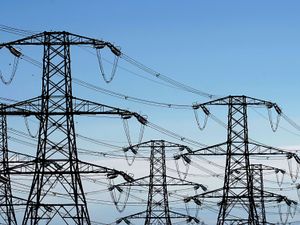Express & Star comment: Coronavirus has made workplaces flexible
During coronavirus, people haven't been able to get out much.

And a revolutionary, long-term impact of the pandemic is the realisation that, in various facets of how we live our lives, you don't actually need to get out much.
Firms have seen the future – and it works.
You can work at home, shop at home, and you can even stay "home" for holidays without the need to go abroad.
As the vaccination programme gives us the luxury of starting to contemplate a post-Covid world, some enforced changes of the last 14 months are going to become permanent changes. Coronavirus has become a vehicle for a kind of workplace liberation.
When things return to normal, things will not return to normal. Millions of workers are being given the chance to work more flexibly. In this hybrid model employees may come to the office on some days and work from home on others.
Naturally, the extent to which this is an option will depend on the nature of the job, and many jobs cannot be done from home. But technology has made possible a great leap. This applies not just to the realms of working. Some Covid patients have stayed at home where they have been on "virtual wards" with their treatment and progress monitored remotely.
With the liberation comes some downsides. If people are to work from home in future, it amounts to institutional social distancing. There is no chatting around the coffee machine, no office gossip, no face-to-face interaction. What sociability there is will come on a screen, which is nothing like the same.
Home is a pleasant, familiar place, but it can be a lonely place as well.
Town and city centre offices and workplaces contribute to the vitality of those town and city centres. Employees may frequent local coffee shops, or do shopping in their lunch hours. With such activities they form part of the local economies and support local jobs.
If they are absent, there will be less polluting traffic during rush hours, which is good for the planet, but the potential price is the livelihoods of some people and a decline of town and city centres.
The Stay Home message has been one of the central themes of the dreadful pandemic. What was once an instruction now looks like becoming a permanent offer of a different way of working.





